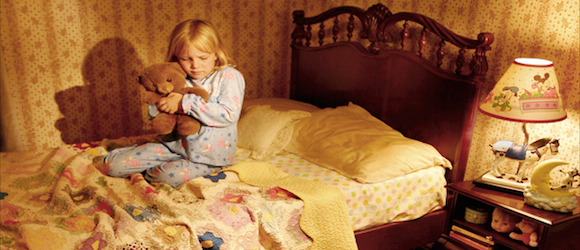
Night Terrors and Children
Most children experience an occasional nightmare. They wake up upset and crying, are comforted by their parents, and then it is back to sleep.
A night terror (or sleep terror), is a sleep disruption that seems similar to a nightmare, but is far more dramatic as his or her fear was likely inconsolable, no matter what you tried. Though night terrors can be alarming for parents who witness them, they're not usually cause for concern or a sign of a deeper medical issue.
Another way to differentiate a nightmare from a night terror is when it occurs. Night terrors tend to happen in the first 2-3 hours of sleep and kids won't remember having it. Nightmares usually happen in the in the later part of the night's sleep, often in the early morning hours. They often can remember all or part of their nightmare.
Causes:
- Over-arousal of the central nervous system often caused by
- sickness, fatigue or stress in children
- new medication
- sleeping away from home or in a new environment
Night terrors are a little more common with boys and usually occur between the ages of 4-12. They are relatively rare occurring in between 5-15% of children. Most of the time night terrors just disappear on their own as the nervous system matures.
Handling Night Terrors:
- As a parent you need to stay calm. It is likely that your child is not remembering these incidents and is not being traumatized by them.
- Have a regular and comforting bedtime ritual that includes a bath, reading and snuggling. Follow this routine every night. As well eliminate night--time eating, television, loud music or roughhousing.
- Try to minimize stress in your child's life. As much as possible do not let him experience loud parental voices. Do not introduce new and stressful routines such as toilet training. This is not a good time for overnights away from home.
- Reduce or eliminate television altogether. Kids younger than 24 months should not watch TV because it negatively impacts brain development, and TV has also been shown to be stressful for little ones, who think the conflicts seen on the screen are real.
- Keep your child rested. Children who are over-tired are more susceptible to night terrors.
- If your child is prone to night terrors a fever might trigger one.
- Don't try to force your child to wake up from a night terror as it could leave your child extremely disoriented
- Children are more likely to have night terrors if they are over-heated while they sleep.
- Do not talk about the episode the next day with you child; very often they will not even be aware of what has occurred.
Most paediatricians agree that children will grow out of night terrors. Understanding night terrors can reduce your worry — and help you get a good night's sleep yourself. But if night terrors happen repeatedly, talk to your doctor about whether a referral to a sleep specialist is needed.